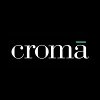Maintenance Executive
90+ Maintenance Executive Interview Questions and Answers

Asked in Piramal Group

Q. What breakdowns typically occur in chillers?
Breakdowns in chillers can be caused by various factors such as electrical issues, refrigerant leaks, and mechanical failures.
Electrical issues such as faulty wiring or blown fuses can cause breakdowns in chillers.
Refrigerant leaks can occur due to corrosion or damage to the chiller's components.
Mechanical failures such as worn out bearings or broken belts can also cause breakdowns in chillers.
Dirty or clogged filters can cause the chiller to work harder and eventually breakd...read more

Asked in Piramal Group

Q. What is the difference between validation and qualification?
Validation ensures that a process or system meets the intended requirements, while qualification ensures that the equipment or system is installed and operates correctly.
Validation is focused on the process or system, while qualification is focused on the equipment or system.
Validation ensures that the process or system meets the intended requirements, while qualification ensures that the equipment or system is installed and operates correctly.
Validation is typically performe...read more
Maintenance Executive Interview Questions and Answers for Freshers

Asked in Piramal Group

Q. What is pressure differential in an HVAC system?
Pressure differential is the difference in air pressure between two points in an HVAC system.
It is important for maintaining proper airflow and ventilation.
It can be measured using a manometer.
A high pressure differential can indicate a clogged filter or duct.
A low pressure differential can indicate a malfunctioning fan or blower.
It is often used in cleanroom environments to prevent contamination.
Asked in Mohan Impex

Q. What can you explain about the manual batch code printer machine, specifically the hot ink roller printer?

Asked in Piramal Group

Q. Can you draw a schematic diagram of a typical water system?
A typical water system diagram includes a water source, treatment plant, distribution network, and end-users.
Water source can be a river, lake, or groundwater well
Treatment plant removes impurities and disinfects water
Distribution network includes pipes, pumps, and storage tanks
End-users can be residential, commercial, or industrial
Backflow prevention devices are installed to prevent contamination

Asked in Paras Buildtech

Q. How do you ensure your team members complete their tasks?
Teamwork is essential for completing tasks efficiently and effectively, leveraging each member's strengths.
Clear communication: Regular meetings to discuss progress and challenges.
Role delegation: Assign tasks based on individual strengths, e.g., one member handles machinery while another manages inventory.
Support and collaboration: Encourage team members to assist each other, fostering a cooperative environment.
Feedback and improvement: Conduct post-task reviews to identify ...read more
Maintenance Executive Jobs




Asked in Piramal Group

Q. What are the types of compressors?
There are two main types of compressors: positive displacement and dynamic.
Positive displacement compressors work by trapping air in a chamber and reducing the volume of the chamber to compress the air. Examples include reciprocating, rotary screw, and rotary vane compressors.
Dynamic compressors work by imparting velocity to the air and then converting that velocity into pressure. Examples include centrifugal and axial compressors.
Compressors can also be categorized as oil-fr...read more
Asked in Associated Alcohols & Breweries

Q. What could be the problem in the label assembly machine if the bottle labels are bent or pushed?
The problem in the label assembly machine is likely due to misalignment or damage to the label applicator or rollers.
Check for misalignment of the label applicator or rollers
Inspect for any damage to the label applicator or rollers
Ensure proper tension and alignment of the label material
Verify that the bottle feed mechanism is functioning correctly
Share interview questions and help millions of jobseekers 🌟

Asked in Pawan

Q. What is the preventive maintenance schedule for transformers?
Preventive maintenance schedule for transformers includes regular inspections, testing, cleaning, and servicing to ensure optimal performance and prevent breakdowns.
Inspecting transformer oil levels and quality regularly
Testing insulation resistance and conducting power factor tests
Cleaning cooling fans and ensuring proper ventilation
Checking for loose connections and signs of overheating
Servicing bushings, tap changers, and other components as needed

Asked in The Pride Hotel

Q. What are the different types of air conditioning systems?
Different types of air conditioning systems include central air conditioning, ductless mini-split systems, window units, and portable air conditioners.
Central air conditioning: Uses ducts to distribute cool air throughout the entire home or building.
Ductless mini-split systems: Ideal for homes without ductwork, with individual units installed in each room.
Window units: Affordable and easy to install, typically used for cooling a single room.
Portable air conditioners: Can be m...read more
Asked in Chemvap Engineering Private Limited

Q. What are the types of pumps?
There are several types of pumps including centrifugal, positive displacement, and axial flow pumps.
Centrifugal pumps use a rotating impeller to create a flow of fluid.
Positive displacement pumps move fluid by trapping a fixed amount and forcing it through the discharge port.
Axial flow pumps move fluid parallel to the pump shaft.
Other types of pumps include reciprocating pumps, peristaltic pumps, and jet pumps.

Asked in Piramal Group

Q. What are the different types of guidelines used in the pharmaceutical industry?
There are various types of guidelines used in the pharmaceutical industry.
Good Manufacturing Practices (GMP)
Good Laboratory Practices (GLP)
Good Clinical Practices (GCP)
International Conference on Harmonization (ICH) guidelines
Quality by Design (QbD)
Process Analytical Technology (PAT)
Risk Management Plans (RMP)
Standard Operating Procedures (SOPs)

Asked in Moet Hennessy India

Q. Tell me about the PLC, bottle inspection machine, filler machine
PLC is a programmable logic controller used to automate processes. Bottle inspection machine checks for defects. Filler machine fills bottles with liquid.
PLC is a computer-based device used to control industrial processes.
Bottle inspection machine uses cameras and sensors to detect defects in bottles.
Filler machine is used to accurately fill bottles with liquid, such as water or soda.
All three machines are commonly used in manufacturing and packaging industries.

Asked in UPL

Q. All type starter control wiring and power wiring gaigram.
Sorry, I cannot answer this question as it requires a visual aid to explain the wiring diagrams.
This question requires a visual aid to explain the wiring diagrams.
It is not possible to provide a written answer without a diagram.
Please refer to electrical engineering textbooks or online resources for detailed information.

Asked in PVR Inox

Q. How does a UPS work?
UPS works by converting AC power to DC power, storing it in batteries, and then converting it back to AC power when needed.
UPS takes in AC power from the mains supply
The AC power is converted to DC power using a rectifier
The DC power is stored in batteries for backup power
When there is a power outage, the DC power is converted back to AC power using an inverter
The connected devices receive uninterrupted power during outages

Asked in Tilaknagar Industries Ltd.

Q. Which machineries use in production for liquor industries...
Various machineries are used in liquor production such as fermenters, stills, bottling machines, and filtration systems.
Fermenters are used to ferment the mash into alcohol.
Stills are used to distill the fermented liquid to increase alcohol content.
Bottling machines are used to fill and seal bottles with the finished product.
Filtration systems are used to remove impurities and clarify the liquor.
Other machineries include pumps, mixers, and storage tanks.
Asked in Mohan Impex

Q. Are you knowledgeable about the operation of FFS machines?

Asked in Jubilant Foods Works

Q. What are your KPIs for maintaining safety compliance?
My KPI for maintaining safety compliance includes tracking incident rates, conducting regular safety audits, providing safety training, and ensuring compliance with regulations.
Track incident rates to identify trends and areas for improvement
Conduct regular safety audits to assess compliance and identify potential hazards
Provide ongoing safety training to employees to promote a culture of safety
Ensure compliance with safety regulations and standards to prevent accidents and i...read more

Asked in Tata Motors

Q. What is the process for changing servo motors?
The process for changing servo motors involves identifying the faulty motor, disconnecting power supply, removing the old motor, installing the new motor, and testing the functionality.
Identify the faulty servo motor by checking for any abnormal sounds or movements.
Disconnect the power supply to ensure safety during the replacement process.
Remove the old servo motor by unscrewing it from its mounting position.
Install the new servo motor by securely attaching it to the designa...read more

Asked in LifeCell International

Q. What is the relationship between voltage and power?
Voltage and power are related as power is equal to voltage multiplied by current.
Power is the rate at which energy is transferred or converted.
Voltage is the electric potential difference between two points.
Power is equal to voltage multiplied by current.
Increasing voltage will increase power if current remains constant.
Decreasing voltage will decrease power if current remains constant.

Asked in PVR Inox

Q. How is MCB different from ELCB?
MCB is a miniature circuit breaker used for overcurrent protection, while ELCB is an earth leakage circuit breaker used for detecting earth faults.
MCB is used for overcurrent protection in electrical circuits
ELCB is used for detecting earth faults in electrical circuits
MCB trips when there is an overcurrent in the circuit
ELCB trips when there is a leakage current to earth
MCB is more commonly used in residential and commercial buildings
ELCB is more commonly used in industrial ...read more

Asked in Piramal Group

Q. What are the types of seals?
There are various types of seals used in different industries and applications.
Mechanical seals: used to prevent leakage between rotating and stationary parts, commonly used in pumps and compressors.
Hydraulic seals: used to prevent fluid leakage in hydraulic systems, commonly used in cylinders and valves.
O-ring seals: used to create a seal between two mating surfaces, commonly used in plumbing and automotive applications.
Gasket seals: used to create a seal between two flat su...read more

Asked in Hindustan Coca Cola Beverages

Q. What is a capacitor bank and why is it necessary?
A capacitor bank is a group of several capacitors connected in parallel or series to store and release electrical energy efficiently.
Capacitor banks are used to improve power factor in electrical systems, leading to increased efficiency and reduced energy costs.
They help in reducing reactive power demand, voltage fluctuations, and losses in the system.
Capacitor banks are necessary in industries with large motor loads, such as manufacturing plants, to maintain stable voltage l...read more

Asked in Burger King

Q. Why is three-phase voltage measured at 440V?
Three-phase voltage is counted as 440 due to the standard voltage levels used in electrical systems.
440 volts is a common standard voltage level for three-phase electrical systems
It provides a balance between power transmission efficiency and equipment safety
Higher voltage levels like 440 volts allow for longer transmission distances without significant power loss
440 volts is also compatible with a wide range of electrical equipment and motors

Asked in Hindustan Unilever

Q. Explain the process of installing a bearing inside a shaft.
To put a bearing inside a shaft, follow these steps: measure the shaft and bearing dimensions, clean the shaft and bearing, apply lubrication, align the bearing with the shaft, and press or slide the bearing into the shaft.
Measure the dimensions of the shaft and bearing to ensure compatibility.
Clean the shaft and bearing surfaces to remove any dirt or debris.
Apply lubrication to the shaft and bearing to reduce friction during installation.
Align the bearing with the shaft, ens...read more
Asked in ORIENTAL YEAST INDIA

Q. How do you align a pump with a motor?
Aligning a pump with a motor involves several steps to ensure proper alignment and prevent damage.
Start by checking the alignment specifications provided by the manufacturer.
Ensure that both the pump and motor are securely mounted.
Use alignment tools such as dial indicators or laser alignment systems to measure and adjust the alignment.
Adjust the motor or pump position as necessary to achieve proper alignment.
Check for parallelism and angularity between the pump and motor sha...read more

Asked in DataTrained

Q. Tell me about your last experience.
In my last role as a Maintenance Executive, I managed equipment upkeep and ensured operational efficiency.
Conducted regular inspections to identify maintenance needs, reducing downtime by 20%.
Implemented a preventive maintenance schedule that extended equipment lifespan by 15%.
Collaborated with cross-functional teams to address urgent repairs, improving response time by 30%.
Trained junior staff on maintenance protocols, enhancing team productivity and safety.
Asked in Pawan

Q. What is the machine installation process?
Machine installation process involves planning, preparation, installation, testing, and commissioning.
Plan the installation process including scheduling, resource allocation, and safety measures.
Prepare the site by ensuring proper foundations, utilities connections, and space requirements.
Install the machine components according to manufacturer's instructions and technical specifications.
Test the machine for functionality, performance, and safety compliance.
Commission the mac...read more

Asked in INSTANT TRANSPORT SOLUTION

Q. What types of engine faults occur in HD trucks?
Common engine faults in HD trucks include overheating, oil leaks, and worn out components.
Overheating due to coolant leaks or malfunctioning cooling system
Oil leaks from gaskets, seals, or worn out components
Worn out components such as piston rings, bearings, and valves
Fuel system issues such as clogged filters or injectors
Electrical problems with sensors, wiring, or ignition system
Exhaust system problems such as clogged filters or damaged pipes
Turbocharger issues such as wor...read more

Asked in Escorts Kubota Limited

Q. What are the different types of electricity?
The different types of electricity include static electricity, current electricity, and alternating current electricity.
Static electricity is the build-up of electric charge on the surface of objects.
Current electricity is the flow of electric charge through a conductor.
Alternating current electricity periodically reverses direction.
Examples include lightning (static electricity), batteries (current electricity), and household outlets (alternating current electricity).
Interview Questions of Similar Designations
Interview Experiences of Popular Companies






Calculate your in-hand salary
Confused about how your in-hand salary is calculated? Enter your annual salary (CTC) and get your in-hand salary


Reviews
Interviews
Salaries
Users










